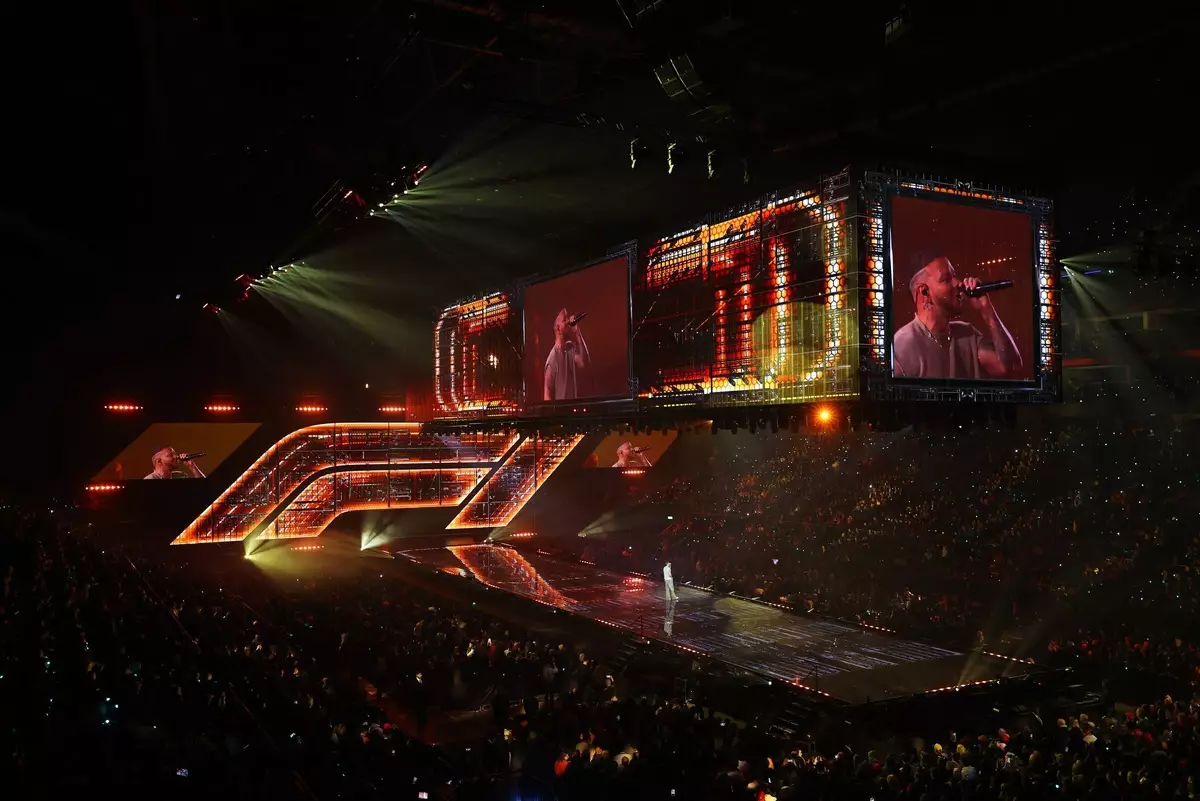The exhilarating atmosphere at the London O2 Arena last Tuesday set the stage for a transformative moment in Formula 1 (F1). As fans, many experiencing an F1 event for the first time, exited the venue buzzing with excitement, it was evident that F1 had tapped into a potent strategy for reaching new demographics. The combination of world-class racing talent and a familiar urban environment fostered a sense of accessibility that resonated with both loyal aficionados and casual newcomers. This unique event not only showcased the allure of F1 but also ignited curiosity among attendees eager to explore the prospect of attending a live grand prix.
While the overwhelming enthusiasm from fans painted a rosy picture, the feedback from teams regarding the event, dubbed F175, was more nuanced. Participants recognized the potential benefits of the event in terms of fan engagement and the promotional opportunities it presented. However, the logistics involved—ranging from PR scheduling conflicts with drivers to heightened production costs—brought forth valid concerns. Despite these apprehensions, it seems the majority of teams acknowledged the positive impact F175 had on the fans attending. Their emotional and physical journey to witness their racing heroes in such an intimate setting highlighted the need for events that break free from traditional racing confines.
Looking ahead, however, it is troubling to note that there are no current plans to host an event of the F175 caliber in the foreseeable future. This is particularly disheartening when we consider the significance of the upcoming British Grand Prix in July, which marks F1’s 75th championship year. Unlike Formula 1, the MotoGP capitalized on their anniversary by adorning teams with nostalgic liveries during their milestone British Grand Prix, a move that gained notable popularity. In contrast, F1’s apparent reluctance to embrace its history casts a shadow over what could have been a celebratory moment to engage the community further.
The true impact of F175 remains to be seen, as the concrete returns on investment are not immediately apparent. The commercial viability of such events will require in-depth analysis to translate fan enthusiasm into measurable outcomes. Until these figures can sway the decision-makers, the potential for a repeat of F175 remains uncertain. Compounding this uncertainty is the significant regulatory overhaul scheduled for 2026, which aims to transform chassis and power unit specifications. As teams navigate these impending changes, the complexities of arranging another large-scale promotional event will undoubtedly weigh heavily on their capacities.
Despite these challenges, the idea of replicating the F175 success in other cities warrants consideration. Locations like Madrid present enticing prospects, especially as it readies itself to host the Spanish Grand Prix in 2026. Meanwhile, the United States remains a prime target for F1 as Liberty Media has shown a clear intent to cultivate a stronger fanbase in this lucrative market since their takeover in 2017. The strategic choices facing the governing body of F1 are varied and layered.
The dilemma persists: should F1 treat these promotional events primarily as revenue sources, or are they pivotal to cultivating a devoted fanbase? If the latter prevails, locations like Rwanda could emerge as interesting contenders to host future events. Rwanda has already showcased its willingness to engage with motorsport by hosting the FIA Prize Giving Ceremony. Additionally, the affluent and publicity-driven Middle Eastern countries continue to seek involvement in F1, albeit at the risk of diluting the essence of connecting with a diverse audience.
The future of Formula 1 hinges on its ability to adapt and innovate while keeping fans at the core of its narrative. The overwhelming response to events like F175 demonstrates a clear demand for engagement that strays from traditional race weekends. It is vital for F1 to seize this momentum and recognize the endless possibilities for reaching new audiences. By doing so, the series can not only strengthen its brand but create enduring connections with fans around the globe. The hope is that moving forward, strategic planning will place fan experience as a priority, ensuring that the sport thrives well into the future.

